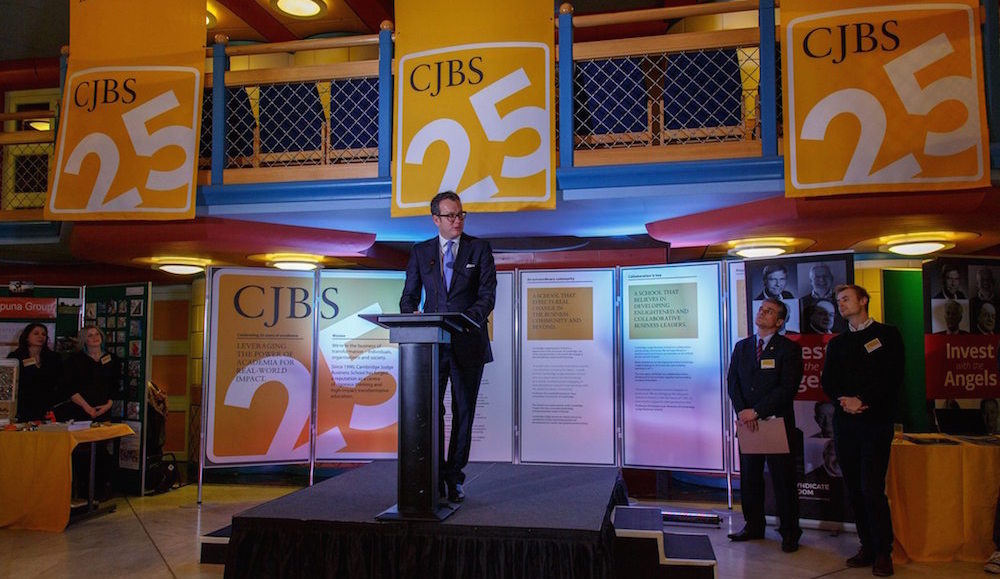
This article first appeared on the Cambridge Judge Business School website, 22 December 2015
I like stories that are simply told. It’s important to see complex problems in simple terms and I believe in the beauty of expression in business. The articulation of a clear and concise purpose has been at the heart of many of the most successful brands across all eras.
Leaders should be on the frontline of their businesses. Business is in my blood and I enjoy leading from the front. My belief is that you should never ask someone to do something you wouldn’t do yourself. In practice that means I am heavily involved in the business day-to-day, pitching for work and overseeing the delivery of campaigns.
I am at heart an optimist and always believe the best is yet to come. That’s crucial for a growing business, where you will face constant challenges, and need a collective mindset that is geared around pouncing on opportunities, even in difficult situations.
Business partnerships must be based on professional respect as well as friendship. Nick [Giles, co-founder of Seven Hills] and I had worked together and he became a friend through business rather than the other way round. From early on, we had the ambition to go into business together, but it took more than a decade and a number of false starts to get there.
I was always taught that no one owed me any favours. My background was important in giving me an early understanding of what I wanted to do; my grandfather and father were both entrepreneurs and they showed me that I would have to make my own way in the world. Now that I have two daughters, I want to instil in them that same mentality of independence and self-reliance.
There is a big debate about whether entrepreneurs are born or made. Sometimes the education system is held up as a barrier to an entrepreneurial culture, but I am a great believer in formal education. The challenge for educators today is how they respond and adapt to the rapid pace of change. One of our clients says that the world is now moving in dog years: at seven times the previous pace. The education system needs to reflect that, and to equip young people with the soft skills that serve you well in business today: networking, initiative and adaptability. An educator’s job is to make sense of the world, and today that requires greater flexibility than has often been the case previously.
It’s vital to share your experience with others. That was one of the motivators behind the creation of StartUp Britain, the government-backed campaign to accelerate early stage enterprise, which I co-founded. The best people for entrepreneurs to learn from are other entrepreneurs. One of the defining characteristics of successful founders is that they never stop learning and the desire for self-improvement never goes away. They also learn in an enthusiastic way and constantly seek new sources of inspiration and knowledge. It’s about making the most of every moment and every conversation.
Away from work, I find exercise is hugely restorative. I approach my stints in the gym in the same way as I do business – I am rigorous and just get in there and do it. True entrepreneurs never lose that edge and appetite. That’s why I don’t see retirement to the golf course as something I will ever do. I’m still following a great piece of advice I was given early in my career: start at the end and work back. There’s still a long way to go.
Co-founder of Seven Hills and StartUp Britain, Michael Hayman MBE is a Fellow in Entrepreneurship at Cambridge Judge. He recently delivered a lecture entitled “Mission: How the Best Entrepreneurs Break Through” at the official launch of the Entrepreneurship Centre on 2 December 2015.